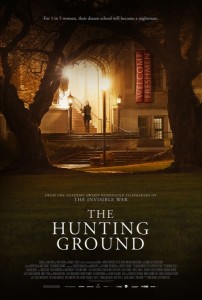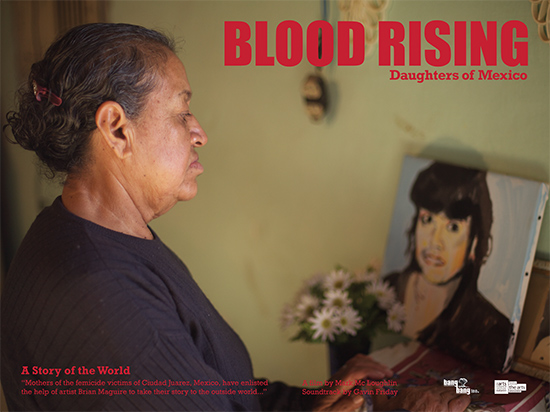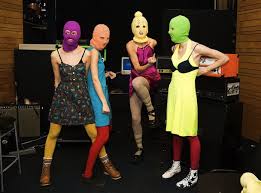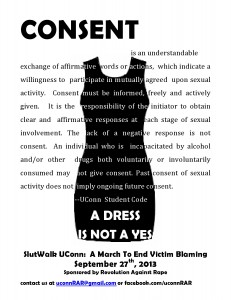Wednesday, April 17th is Take Back the Night on the University of Connecticut campus. An event recognized across North America in response to violence against wimmin. Since its inception Take Back the Night has been about reclaiming space beyond the physically passive act of recognition and observation. Wimmin, the disproportionate victims of domestic violence, rape, sexual assault and harassment, have found solidarity through the action of speaking out and mobilization en masse against this violence. It’s sister mobilization, Slutwalk, has also achieved support across the broad spectrum of wimmin who experience patriarchy in the streets, an intended social space for interaction in work, transit and play.
The Alternative Press Collection (APC) in the Archives contains numerous publications on wimmin-positive theory and praxis in response to gender violence since the 1960s. Of note is the feminist publication Aegis: Magazine on Ending Violence Against Women published in 1978 by the Feminist Alliance Against Rape. Defined by the magazine’s statement of purpose, the movement to build solidarity through information was seminal in establishing wimmin’s resources in regions where silence was (is) the normative response to gender violence:
The purpose of Aegis is to aid the efforts of feminists working to end violence against women. To this end, Aegis provides practical information and resources for grassroots organizers, along with promoting a continuing discussion among feminists of the root causes of rape, battering, sexual harrassment and other forms of violence against women.
Depicted in the image below is the cover of the September/October 1979 issue, portraying the advocacy debate around wimmin’s rights to self defense.
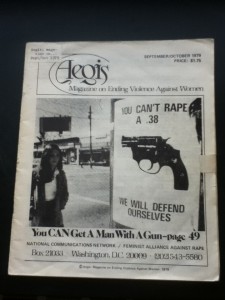 In addition to our extensive APC collection of periodicals is a recently acquired special collection art installation about building solidarity and non-violence amongst wimmin through art therapy. In this case, pulping panties into paper! From the Peace Paper Project comes another alliterative piece, Panty Pulping! The installment consists of loose pieces of paper made from mulched wimmin’s underwear that has been forged anew through storytelling and constructing the foundations of a new page for which a narrative can be written about wimmins voices together.
In addition to our extensive APC collection of periodicals is a recently acquired special collection art installation about building solidarity and non-violence amongst wimmin through art therapy. In this case, pulping panties into paper! From the Peace Paper Project comes another alliterative piece, Panty Pulping! The installment consists of loose pieces of paper made from mulched wimmin’s underwear that has been forged anew through storytelling and constructing the foundations of a new page for which a narrative can be written about wimmins voices together.
To view these pieces or any materials about wimmin’s rights and radical feminism, please contact the curator.

